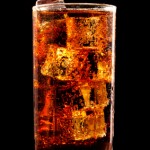Fructose And Your Blood Pressure – Watch Out!

 Many of my patients battle high blood pressure. In treating these patients, I like to rule out that there is nothing in their lifestyles that may be causing their BP to stay elevated. These things can include too much stress, alcohol, too much salty food and, surprisingly, too much fructose – or fruit sugar. That’s right – let me explain why.
Many of my patients battle high blood pressure. In treating these patients, I like to rule out that there is nothing in their lifestyles that may be causing their BP to stay elevated. These things can include too much stress, alcohol, too much salty food and, surprisingly, too much fructose – or fruit sugar. That’s right – let me explain why.
Fructose and Your Blood Pressure
Recent research has found that people who consumed about 74 grams of fructose (about 4, 12 ounce non-diet soft drinks) a day had elevated, or borderline elevated blood pressures. Fructose, a sugar derived from fruit, is the sweetening agent most often used in soft drinks, juices, baked goods, table sugar, and a whole host of food and drink products.
Fructose apparently has a special role in raising blood pressure that other sugars do not. In one study, mice fed fructose had reduced salt excretion through kidneys which resulted in hypertension. It apparently derails a gene in the small intestine responsible for regulating salt absorption. Too much salt is retained and blood pressure rises. In another study, uric acid levels were found to be raised with fructose which also was thought to contribute to high blood pressure.
Similar findings were found in human studies as well. Patients with documented hypertension or borderline pre-hypertension, upon review were found to have high intakes of fructose. Since most Americans barely eat the recommended amount of whole fruit per day, researchers (mostly kidney specialists) concluded that most of their fructose intake was from a concentrated form called high fructose corn syrup, or HFCS. This is a low cost sweetening agent used most often by food manufacturers in hundreds of food and drink items.
Hypertension – high blood pressure – rates have dramatically increased in Americans over the past century during the same time that fructose, in the form ofHFCS, consumption has also dramatically increased. The researchers/authors of the fructose/hypertension studies concluded that high fructose intake is a strong predictor for greater risk of hypertension.
However, manufacturers of HFCS state that fructose or high fructose corn syrup, is not any more damaging to health than any other sugar. In addition, they feel that the research studies are “flawed.” In fact, my patients relate that television commercials tell them “sugar is sugar”, whether it’s HFCS or some other sugar, and so they are understandably confused. Researchers are currently conducting further studies to better support their conclusions regarding fructose’s role in raising blood pressure.
Your Diet – Too Much Fructose?
As stated above, fructose coming from natural, whole fruits does not seem to be the problem researchers have associated with hypertension. That said, even too much natural fructose from whole fruits may have the same effects in fructose/glucose sensitive individuals – particularly type 1 or 2 diabetics, or people with metabolic (insulin) resistance.
Diabetics and those who are insulin resistant do not metabolize fructose (which converts to glucose) the same and efficient way that others do. They have sluggish insulin responses and their blood sugar levels can remain too high for too long a period of time. Too high blood sugars can raise blood pressure which raises the risk for heart attack and stroke. I advise my patients that I prefer they omit, or drastically cut down, products containing HFCS, especially if they have blood pressure issues already.
To avoid too much fructose in your diet, you must read labels carefully. The following is a partial list of foods and drinks that most often contain HFCS:
- Non-diet sodas
- Fruit juices
- Commercial, processed baked goods (cakes, cookies, pies, donuts, candy)
- Some packaged commercial foods (read labels)
- Tomato-based sauces (spaghetti, ketchup, barbecue sauce, etc)
- Cereals, especially children’s, but “adult” brands can contain smaller amounts
- Processed meats such as lunch meats, dinner sausage
- “Fruit on the bottom” and fruit-flavored yogurts
- Over the counter medicines such as cough syrups, chewable aspirins, liquid pain relievers
- Salad dressings, especially “fat reduced” types. Manufactures increase sweetness to make up for the loss of oil.
Although food manufacturers defend the use of fructose, and HFCS, claiming they’re perfectly safe to use, I tell my patients to read labels carefully. I would prefer they avoid added fructose as all refined sugars have a poor effect on health in large amounts. Stevia can be added to unsweetened products for sweetness without the health risks. There are even a variety of stevia sweetened soft drinks available at health food markets now to allow you to enjoy a few cold soft drinks now and then without risking your health.
Stay Well,
Mark Rosenberg, M.D.